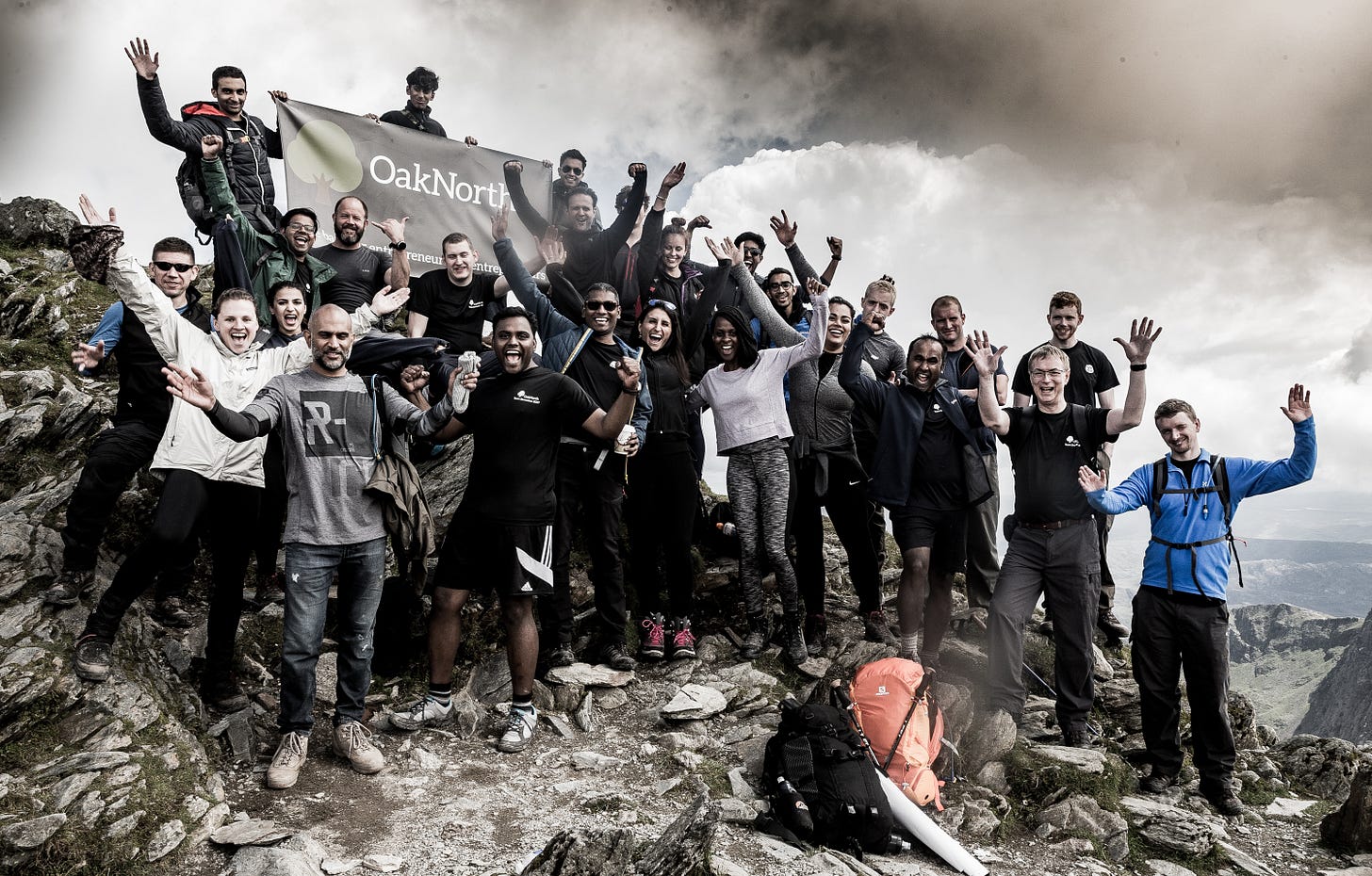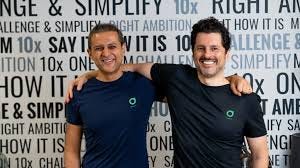The Bank of Rishi and Joel
Meet Stewart Haworth, OakNorth's man in the North, on how the challenger bank is empowering the 'Missing Middle'
Hello Rainmakers,
Our insights into how funders make the decisions they do have proved popular, but so have the pieces where we look at different career paths that fellow Rainmakers have taken.
Today we’re bringing you a bit of both.
It’s the result of a chat to Stewart Haworth who joined challenger bank OakNorth over five years ago. It’s a revealing conversation, and an honest one, but hopefully it gives something of why OakNorth is different to deal with, but also what other people might think of them.
People will all know about the Bank of Dave, but no-one has made a Netflix dramatisation of the story of the challenger bank OakNorth. Yet.
Maybe Rishi Khosla and Joel Perlman don’t have the same plucky underdog persona as Dave Fishwick, the Burnley businessman who wanted to launch the Burnley savings and loan, and fought the behemoths of the banking world, becoming a Lancashire folk hero and the subject of a Netflix series in the process.
Yet OakNorth, which calls itself “the digital bank for entrepreneurs, by entrepreneurs” lays claim to “empowering” the lower mid-market (businesses with £1m-£100m turnover) to support growth, prosperity, and innovation for the benefit of all.
It was founded in 2015 by Khosla and Perlman after they had successfully sold Copal Partners, a financial data analytics company, to Moody's in 2014. In securing a new banking license in the UK, it was only the third bank to have done so for 150 years.
To date, to fund the business, as well as investing their own capital, OakNorth has raised over $1bn from world-renowned investors including Softbank, GIC, Toscafund, Clermont Group and SMBC.
Since then OakNorth has since lent over £12bn to the “missing middle” the bedrock of the UK economy, which it claims has directly helped create 56,000 new jobs and build 34,000 new homes in the UK, but always sticking to the fundamental purpose it was set up for: to empower the lower mid-market (businesses with £1m-£100m turnover) to support growth, prosperity, and innovation for the kind of business it says is routinely underserved or overlooked by traditional banks: what they call “scale-ups.
Khosla and Perlman, experienced just how out of touch the mainstream banks were getting when they were scaling their previous company, Copal. In 2005, three years after launching the business, they applied for a bank loan and they got the “computer says no’’ response, despite the business being profitable and having strong cashflow. It sounds like the beginning of a fairy tale story that would indeed make a great start to a film, but as entrepreneurs, their natural response was to build that digital bank for entrepreneurs, by entrepreneurs, ensuring businesses like theirs get the products, services, and experience they need to succeed and scale.
Since inception, and the clue is in the name, OakNorth has had dedicated operations and customer services teams in the North, first in Manchester where it has expanded its team and capabilities in the city, including with several debt finance directors and associates.
But it also has regional hubs in Leeds and Newcastle, supporting businesses across Yorkshire and the North East, as well as several regional hubs and offices in other parts of the UK.
But it wasn’t just the automation and process driven culture that was poorly serving customers, it was also stripping talented ambitious executives who thought they were entering a career to take risk and back businesses.
People like Stewart Haworth, who took a risk and left a comfortable job at Santander - and before that having learnt his trade in his 11 years at Barclays - to join the unheard of insurgent OakNorth in 2019, and like the foundation story of the bank itself, it’s also a tale with some romance to it.
“I think there is a definite romance to the story,” Haworth says in his warm and welcoming Lancashire accent. “If I take a real big step back, though, we should never have got to where we were, as a country. You had the big four banks, they had everything sewn up. They had the market. But they decided that they weren't going to support this area of the market, and that's where then people like Shawbrook and ThinCats came into the market, to fill that gap.”







